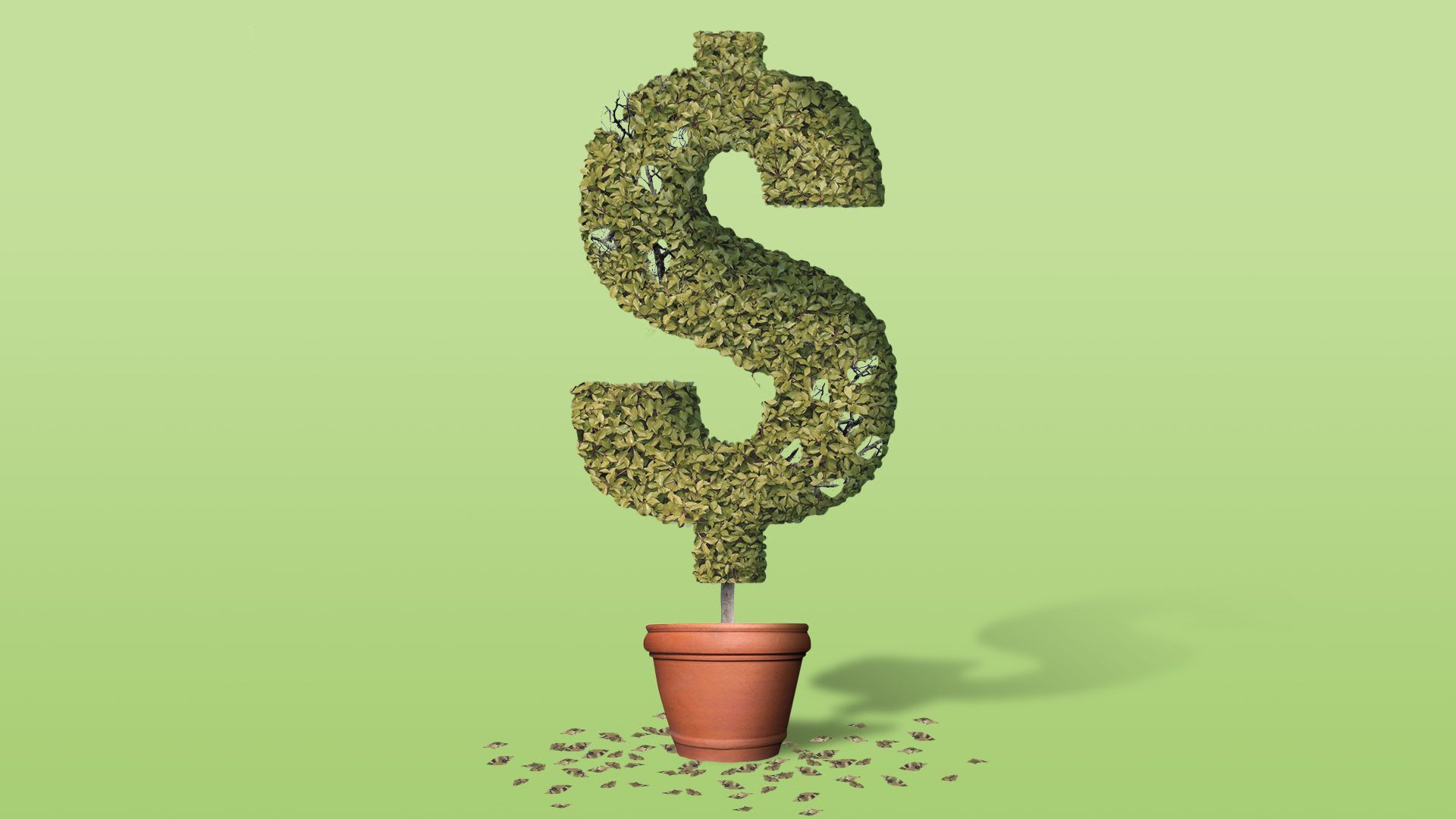Consumer confidence is wilting
Add Axios as your preferred source to
see more of our stories on Google.

Illustration: Aïda Amer/Axios
Consumer confidence is moving backwards as more companies announce layoffs, jobs get harder to find and the coronavirus pandemic continues to wreak havoc on the economy.
Why it matters: It's the latest indicator showing the U.S. economy is weakening moving into the back half of the year.
The big picture: The low readings on consumer confidence have persisted despite the skyrocketing housing and stock markets, which typically boost sentiment by driving the wealth effect.
- That consumer sentiment has fallen while the S&P 500 has risen for five straight months and by nearly 50% with housing prices counting superb back-to-back months suggests an increasing disconnect between markets and the economy.
Driving the news: The Conference Board's consumer confidence survey fell for the second straight month in August, dropping to its lowest since April 2014.
- Plus, the University of Michigan's consumer sentiment index has similarly shown weak readings in July and August.
What they're saying: “The Present Situation Index decreased sharply, with consumers stating that both business and employment conditions had deteriorated over the past month," Lynn Franco, senior director of economic indicators at the Conference Board, said in a release.
- "Consumers’ optimism about the short-term outlook, and their financial prospects, also declined and continues on a downward path."
The intrigue: "Consumer spending has rebounded in recent months but increasing concerns amongst consumers about the economic outlook and their financial well-being will likely cause spending to cool in the months ahead,” Franco added.
Make it plain: Readings fell across the board.
- Consumers' assessments of their current and future conditions fell and the view that business conditions are “good” declined, while those claiming business conditions are “bad” increased.
- Appraisal of the job market also tumbled, with more respondents describing jobs as “hard to get.”
- Consumers were similarly pessimistic about the future, with expectations of job expansion and income increases all falling.
Yes, but: The survey gathered data until Aug. 14, which was near a turning point of daily new COVID-19 cases in the U.S. falling from their late-July peak.
The bottom line: U.S. consumer spending has held up remarkably well thanks to significant fiscal and monetary assistance, but spending is highly tied to confidence and, of course, money. And millions of unemployed Americans now have $600 a week less.
- "This does not bode well for Q4 consumption, if Congress does not get its act together," Ian Shepherdson, chief economist at Pantheon Macroeconomics, said in a note.


As consumer confidence has fallen in recent months CEO confidence has picked up, with CEOs holding a more positive outlook in the Conference Board's third quarter survey than they did when surveyed in Q1, before the coronavirus pandemic hit.
- CEO confidence is nine points higher — nearly 22% — than it was in the Q1 survey in February, and reached its highest since Q3 of 2018.
What's happening: CEO confidence has improved despite more expectations for layoffs, reduced capital spending and lower budgets.
- Over the next 12 months, 38% of surveyed CEOs expect to reduce their workforce.
- 37% say they will trim their capital spending budgets by 10% or more.
- More than a third do not foresee increasing employees’ average wages over the next 12 months.
- Nearly 50% say they will increase wages by less than 3%.
